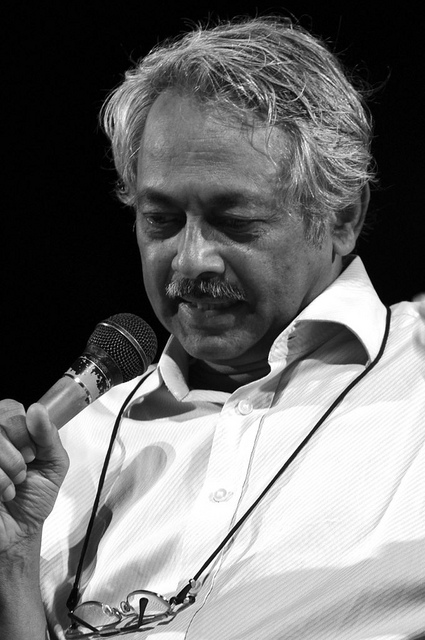On Koormavatara
Subscribe on Substack, via RSS/Atom, or follow me on Twitter for updates
Koormavatara, by Girish Kasaravalli, as I saw it recently at Bangalore International Film Festival, was at once a forceful narrative but also a wandering film with an unsuccessful climax. The emotionally withdrawn Anand Rao’s journey of, at first reluctantly, playing Gandhi in a TV drama is the central device through which Kasaravalli explores the trouble of authenticity in historical perception and historical portrayal in art.
 Rao’s portrayal of Gandhi finds him in conflict with his director. It is this conflict between Rao’s insistence on a historically accurate portrayal as opposed to the directors cinematic or more emotional portrayal that brings to the fore the tension between two ways of representing history. Particularly the scenes early in the film show the cinematic representation to be more authentic then Rao’s perception. Despite this later scenes show that the subjective portrayal of Gandhi is as authentic and accurate as the researched cinematic version. This slowly changing relationship between Rao and his director shows a subtle metaphor about how both ways of representing history are plagued by subjectivity and that Rao’s representation informs the director’s and vice versa.
Rao’s portrayal of Gandhi finds him in conflict with his director. It is this conflict between Rao’s insistence on a historically accurate portrayal as opposed to the directors cinematic or more emotional portrayal that brings to the fore the tension between two ways of representing history. Particularly the scenes early in the film show the cinematic representation to be more authentic then Rao’s perception. Despite this later scenes show that the subjective portrayal of Gandhi is as authentic and accurate as the researched cinematic version. This slowly changing relationship between Rao and his director shows a subtle metaphor about how both ways of representing history are plagued by subjectivity and that Rao’s representation informs the director’s and vice versa.
The film nevertheless is not without its shortcomings. All the performances are engaging and well rounded although Shikarapura Krishnamurthy who plays Rao is flat at times. The return to a stock selection of emotional states and gestures causes some scenes such as those where Rao argues with the director, played by Apoorva Kasaravalli, to lose their poignancy. With this are some unnecessary plot points, especially that of Rao’s sudden repenting for not caring for his late wife who died of cancer. This sudden repentance seems both out of character and contributing little to the narrative. The continued reappearance of the tortoise motif seems to go no where or at least seems to lack efficacy in communicating what it sets out to communicate. Perhaps the film’s biggest shortcoming is its climax. The climatic sequences where Rao refuses to help his son out debt and also fails to stand up for his friend’s son, Iqbal are illogical and overbearing respectively. Rao’s sudden refusal to help his son because he has a quasi-moral objection to share-trading is inconsistent if not unbelievable. Rao’s failure to stand up for Iqbal, played by Vikram Soori, who is removed from the role of Godse because he is a muslim is too loud a metaphor about religion and communalism in an otherwise subtle film.
Koormavatara then is a film that is definitely worth watching for its meta-discussion about art and history, but is also definitely not one of Kasaravalli’s best.
Saranga Sudarshan
(photo by Hari Prasad Nadig)